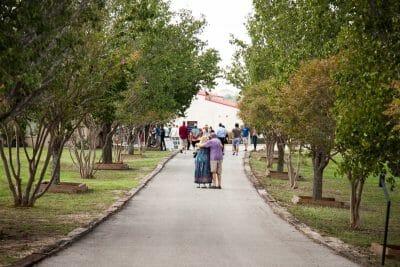The decision to go to drug rehab is a difficult one, but it is often the best decision for those struggling with addiction. However, choosing the right drug rehab facility is essential to ensuring a successful recovery. There are many factors to consider when choosing a drug rehab, such as cost, location, length of stay, and treatment options.
Cost
The cost of drug rehab can be a major deciding factor for many people. Inpatient drug rehab can be expensive, but there are many financing options available. Many insurance plans cover at least some of the cost of drug rehab, and there are also government-funded programs available. It is important to research all of your options before making a decision.
Location
The location of the drug rehab facility is another important consideration. For some people, it may be best to stay close to home so that they have family and friends nearby for support. For others, it may be best to get away from their current environment and start fresh in a new place. There are pros and cons to both options, and the decision ultimately comes down to what is best for the individual. In this case, Ohio Community Health Recovery Centers can be considered as potential facilities within Ohio that offer recovery services.
Length of Stay
The length of stay at a drug rehab facility is also an important consideration. Some facilities offer short-term stays of 30 days or less, while others offer long-term stays of 60 days or more. The length of stay should be based on the severity of the addiction and the individual’s needs.
Treatment Options
Finally, the treatment options offered by the drug rehab facility should be taken into consideration. Some facilities offer traditional 12-step programs, while others offer more holistic approaches that focus on mind-body-spirit healing. There are many different treatment options available, and it is important to choose a facility that offers the ones that are most likely to work for the individual.
What Happens in a Drug Rehab Program?
Every drug rehabilitation program is different, but there are some commonalities that apply to all programs. First and foremost, each individual’s treatment plan will be tailored to their specific needs and situation. This means that every person’s experience of drug rehab will be unique, though there are certain elements that are often found in many successful rehab programs.
Detoxification
The first step of many drug rehab programs is detoxification or “detox” for short. Detox is the process of ridding the body of all toxins associated with the substance being abused. This process usually takes place under medical supervision and can include medications to help ease any withdrawal symptoms that may arise during this time. Allure Detox is an example of a detox center that offers medical detox programs for individuals struggling with substance abuse.
This process usually takes place under medical supervision and can include medications to help ease any withdrawal symptoms that may arise during this time. In addition, counselors and other professionals will work together with the patient to provide emotional support as well as education about addiction and relapse prevention techniques.
Counseling Sessions
Counseling sessions are another key part of successful drug rehab programs. These one-on-one or group counseling sessions allow individuals to discuss their experiences with addiction, learn more about how it affects them personally and how it has impacted their lives, and develop coping strategies for dealing with cravings and triggers in the future.
These sessions also give individuals an opportunity to build supportive relationships with others who have experienced similar struggles with addiction and understand what they’re going through on a deeper level.
Choosing the right drug rehab facility is essential for a successful recovery from addiction. There are many factors to consider when making this decision, such as cost, location, length of stay, and treatment options. It is important to do your research and make sure you are choosing the b
